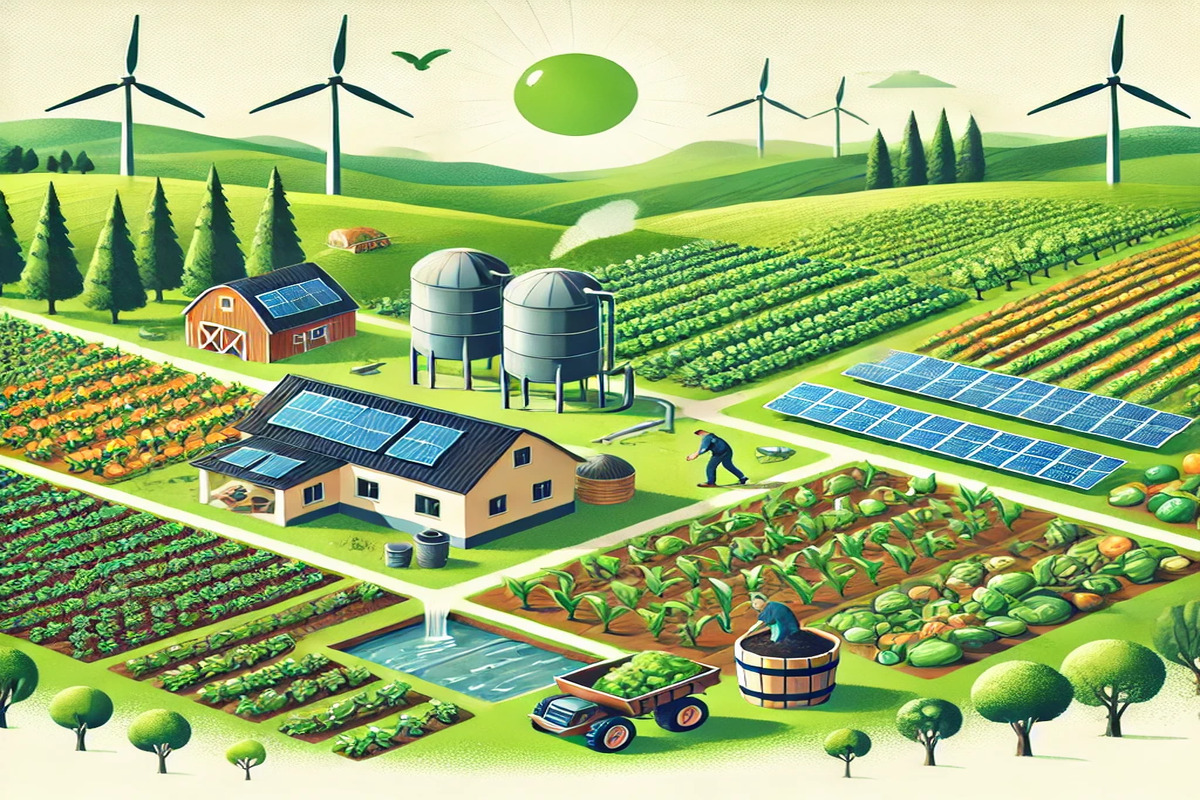In today’s environmentally conscious world, sustainability in food production is not just a trend but a crucial aspect of business ethics and consumer demand. Read More
This blog explores effective and cost-efficient practices that eco-friendly businesses can adopt to promote sustainability in food production.
Importance of Sustainability in Food Production
Sustainability in food production involves practices that minimize environmental impact, conserve natural resources, and prioritize the well-being of workers and communities. By embracing sustainable practices, businesses can enhance their brand reputation, attract eco-conscious consumers, and contribute positively to the planet’s health.
Key Practices for Eco-Friendly Food Production
Organic Farming Methods
- Benefits: Organic farming avoids synthetic pesticides and fertilizers, promoting soil health and biodiversity.
- Cost-Efficiency: Long-term benefits include reduced input costs and improved soil fertility, although initial transition costs may be higher.
Water Conservation Techniques
- Methods: Implement drip irrigation, rainwater harvesting, and water-efficient equipment to minimize water usage.
- Cost-Efficiency: Lower water bills and potential rebates or incentives for water-saving practices contribute to cost savings.
Energy-Efficient Operations
- Strategies: Upgrade to energy-efficient appliances, install solar panels, and optimize energy use during production and distribution.
- Cost-Efficiency: Reduced energy bills and potential tax incentives or grants for renewable energy investments offset initial setup costs.
Waste Reduction and Recycling
- Practices: Implement composting programs, reduce packaging waste, and recycle materials like cardboard and plastics.
- Cost-Efficiency: Lower waste disposal fees, potential revenue from selling recyclable materials, and savings from reduced packaging costs.
Local Sourcing and Seasonal Ingredients
- Benefits: Source ingredients locally to support regional economies, reduce transportation emissions, and offer fresher, seasonal products.
- Cost-Efficiency: Reduced transportation costs, potential partnerships with local farmers, and fresher ingredients that enhance product quality.
Implementing Sustainable Certifications
Certifications and Standards
- Examples: Obtain certifications like USDA Organic, Fair Trade, or Rainforest Alliance to verify sustainable practices and enhance consumer trust.
- Cost-Efficiency: Certifications may involve upfront costs for audits and compliance but offer market differentiation and access to eco-conscious consumers.
Consumer Education and Transparency
Educational Campaigns
- Initiatives: Educate consumers about the benefits of sustainable practices and transparently communicate your business’s sustainability efforts.
- Cost-Efficiency: Low-cost marketing through social media, email newsletters, and in-store signage builds consumer loyalty and reinforces brand values.
Collaborating for Collective Impact
Industry Collaboration
- Partnerships: Collaborate with suppliers, distributors, and industry associations to share best practices and advocate for sustainable policies.
- Cost-Efficiency: Collective action amplifies impact, influences regulatory changes, and reduces costs associated with individual sustainability initiatives.
Conclusion
Embracing sustainability in food production is not only a moral imperative but also a strategic business decision that can lead to long-term cost savings, enhanced brand reputation, and increased consumer loyalty. By adopting cost-effective practices such as organic farming, water conservation, energy efficiency, waste reduction, local sourcing, obtaining sustainable certifications, educating consumers, and fostering industry collaboration, eco-friendly businesses can contribute positively to environmental stewardship while thriving in a competitive market. As consumer awareness grows and regulatory frameworks evolve, prioritizing sustainability will position food businesses as leaders in a more sustainable and prosperous future for all.

